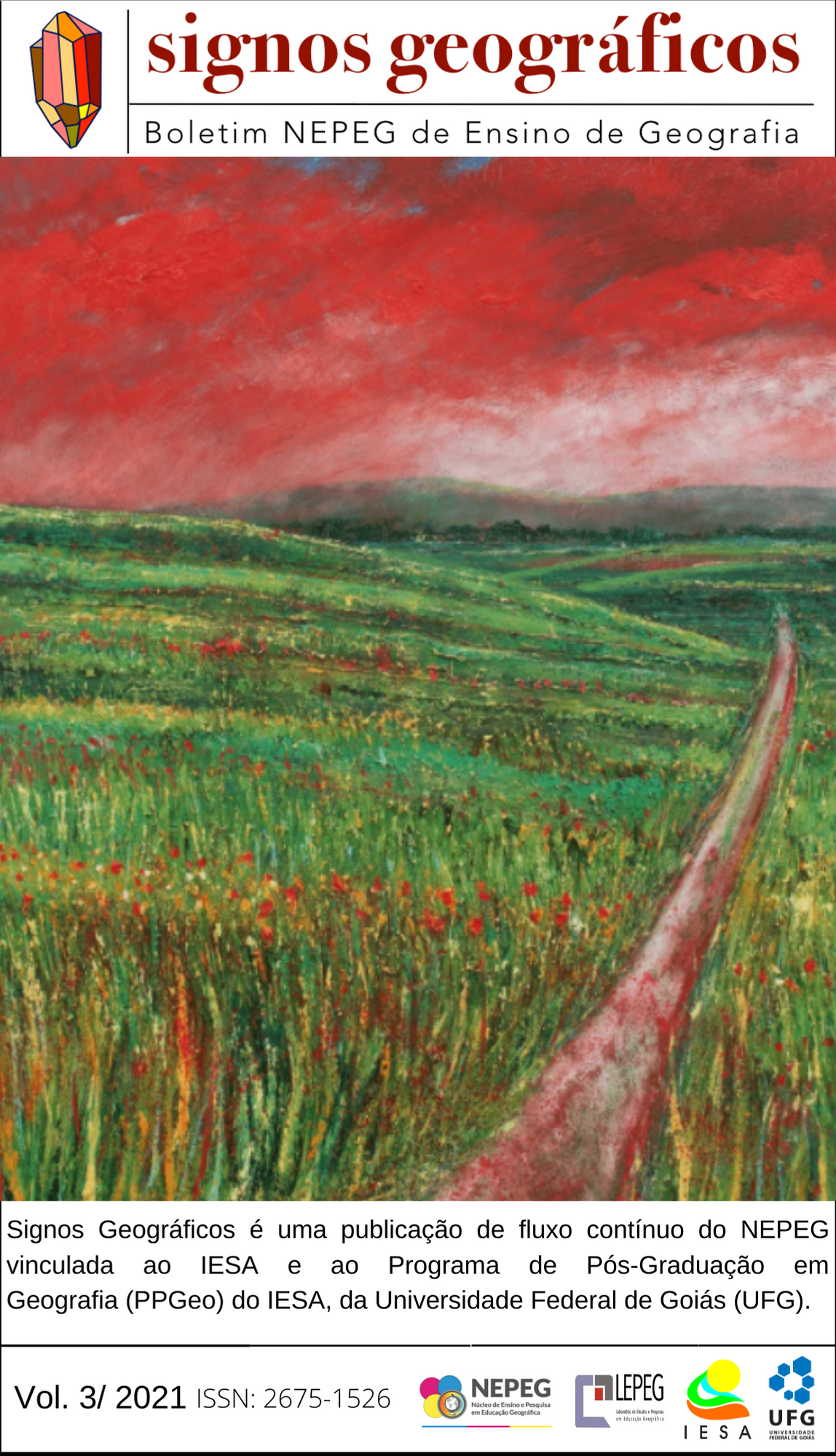EDUCAÇÃO GEOGRÁFICA NOS ANOS INICIAIS DO ENSINO FUNDAMENTAL: A PERCEPÇÃO INFANTIL SOBRE A DIFERENCIAÇÃO SOCIAL EM ESPAÇOS DA CIDADE
Palavras-chave:
cidade, crianças, Geografia, percepçãoResumo
O artigo compartilha resultados de um estudo realizado junto a um grupo de 15 (quinze) crianças, moradoras do Bairro Lomba do Pinheiro, localizado na zona leste da cidade de Porto Alegre (RS) e distante cerca de 20km do centro. Buscou-se compreender de que formas estas crianças apreendem a cidade e a si mesmas nessa relação com o espaço urbano, no intuito de acessar os conteúdos infantis e assim conhecer suas experiências cotidianas, na maioria das vezes segredadas aos adultos. A pesquisa valeu-se do conceito de adulto atípico de William Corsaro (2009). A cidade de Porto Alegre compreendida enquanto conteúdo de educação, conteúdo educativo e agente educador (CAVALCANTI, 2008), é o foco central para análise dos diálogos estabelecidos. A observação de alguns elementos da paisagem urbana aliada às experiências de corpos e imaginação no mundo compõem o repertório a partir do qual a cidade vai sendo interpretada ao mesmo tempo em que vivida. E o reconhecimento de diferenças espaciais, que ao impactarem na qualidade de vida dos indivíduos tornam-se desigualdades, conduz o eixo argumentativo através do qual as crianças demonstram serem conhecedoras do complexo arranjo socioeconômico ao qual estão atreladas.








